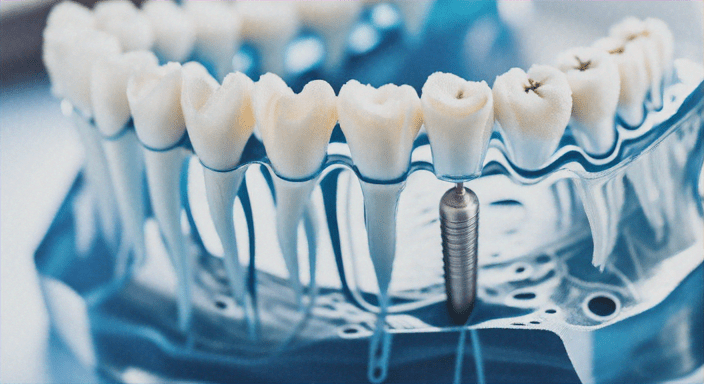Ensuring the longevity and success of dental implants hinges significantly on the care provided post-surgery. This article endeavors to offer a comprehensive guide on the necessary steps and practices to ensure your dental implants remain functional and aesthetically pleasing for many years.

Fundamental Processes of Dental Implants:
To grasp the appropriate aftercare, it is crucial to understand the dental implant procedure. The process spans several months and multiple stages, starting from consultation and planning, moving through surgical placement, and culminating in the attachment of the visible prosthetic tooth.
-
Consultation and Planning:
A meticulous examination and evaluation of your oral health and bone density are conducted. Advanced imaging aids in the precise planning of implant dimensions and positioning. If bone density is insufficient, bone grafting might be suggested to support the implant.
-
Implant Placement:
The actual placement of the implant involves a surgical procedure where a titanium post is embedded into the jawbone, serving as the root for the artificial tooth. This surgery is usually performed under local anesthesia, and in some cases, sedation may be used.
-
Healing and Osseointegration:
A prolonged healing period allows for osseointegration, the process where the implant fuses securely with the surrounding jawbone, ensuring stability.
-
Abutment Placement:
Following osseointegration, a connector abutment is attached to the integrated implant, often requiring minor surgery to expose the implant site.
-
Placing the Prosthetic Tooth:
The final phase involves placing the crown or prosthetic tooth, which is custom-crafted to match the color and shape of your natural teeth, ensuring a harmonious blend with your smile.
1. Immediate Post-Surgery Care:
Post-surgery, it is typical to encounter swelling, bruising, minor bleeding, and discomfort. To alleviate these symptoms:
-
Utilize an ice pack on the cheek near the implant site to mitigate swelling.
-
Adhere to the prescribed pain relief medication as directed by your dentist.
-
Refrain from rinsing, spitting, or touching the surgical area on the day of surgery to avoid dislodging the blood clot.
2. Oral Hygiene:
Maintaining excellent oral hygiene is crucial to ward off infections and guarantee the success of your dental implants.
-
Commence gentle brushing of your teeth the day following surgery, initially avoiding the surgical site.
-
Rinse your mouth with warm salt water multiple times daily, particularly after meals, to maintain cleanliness in the area.
-
Avoid using commercial mouthwashes during the initial healing phase, as they may irritate the implant site.
3. Eating Habits:
Your dietary choices influence your healing process. Opting for softer, nourishing foods aids in recovery.
-
Consume soft foods and liquids for the initial days post-surgery. Steer clear of hot and spicy foods that may irritate the surgical area.
-
Gradually reintroduce harder foods as the implant site heals.
-
Stay hydrated, but avoid using a straw as the suction can interfere with the healing process.
4. Avoiding Harmful Habits:
Certain practices can detrimentally impact the healing of your dental implants.
-
Abstain from smoking and alcohol consumption, as these can impede healing and elevate the risk of implant failure.
-
Avoid strenuous exercise for a few days post-surgery, as it may lead to increased bleeding and swelling.
5. Follow-Up Visits:
Routine check-ups with your dentist are vital to monitor the healing process and the integration of the implant.
-
Attend all scheduled follow-up appointments to allow your dentist to track your progress and address any concerns.
-
Notify your dentist immediately if you observe any unusual symptoms, such as persistent pain, swelling, or implant mobility.
Conclusion
Proper post-operative care is a pivotal factor in the long-term success of your dental implants. By adhering to these guidelines, you can ensure a seamless healing process and fully reap the benefits of your new teeth. Remember, dental implants necessitate the same care as natural teeth, so consistent dental check-ups, diligent oral hygiene, and a healthy lifestyle are imperative for their maintenance. Embrace these practices, and your dental implants will serve as a lasting contribution to your oral health and overall well-being.





